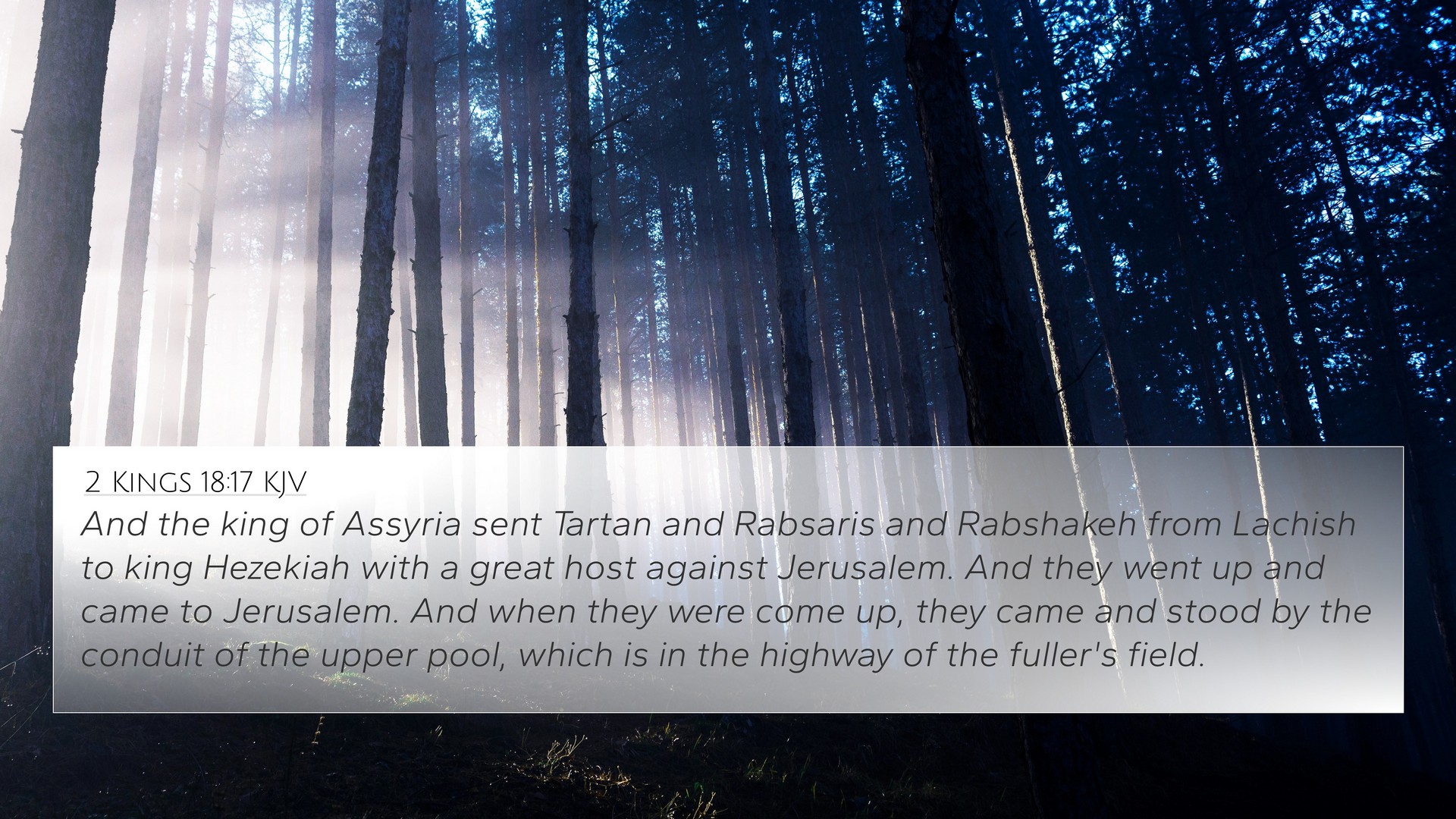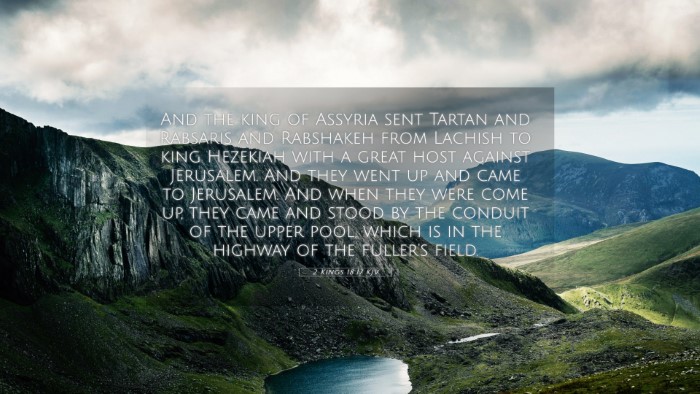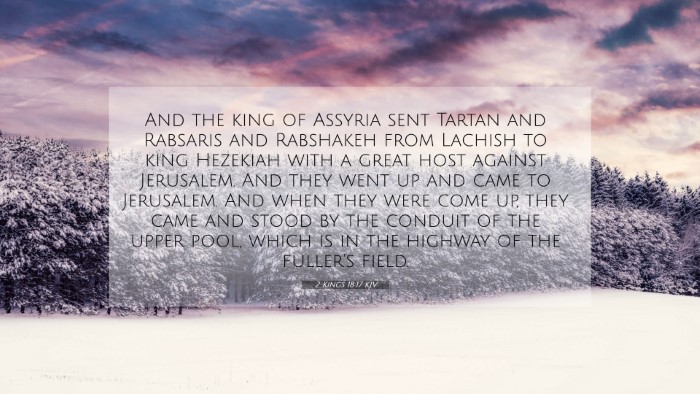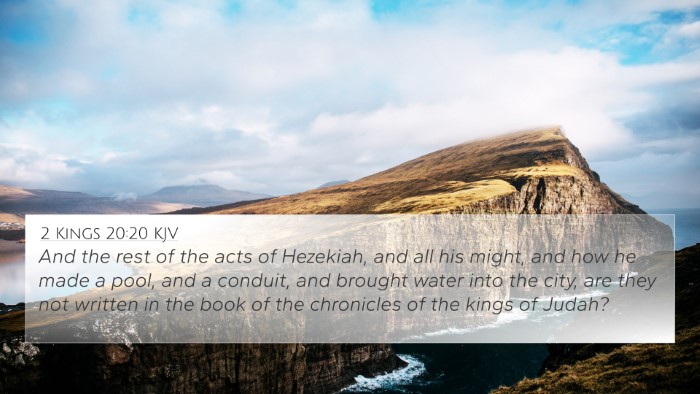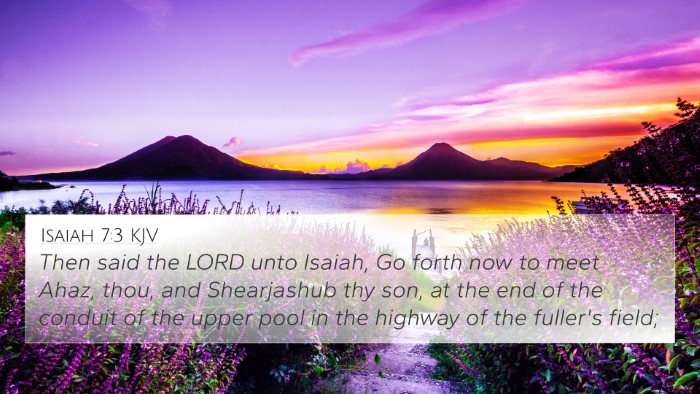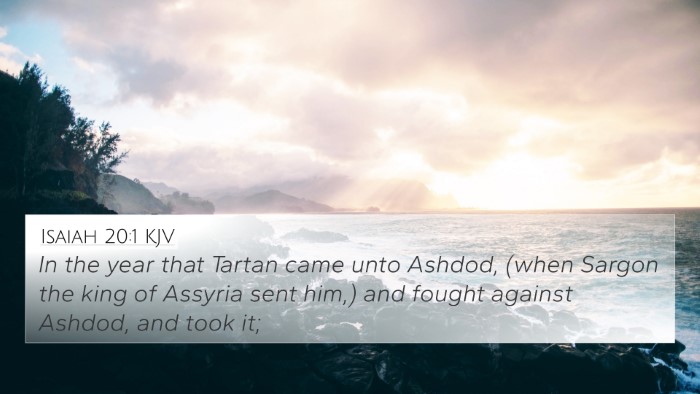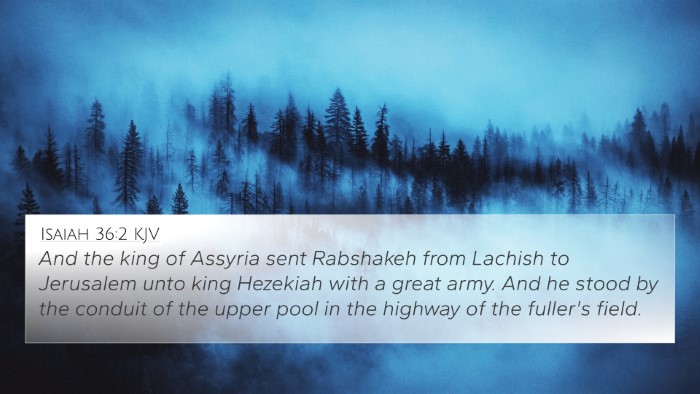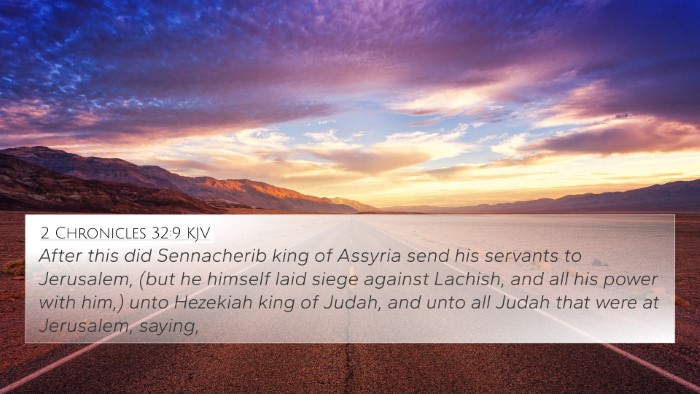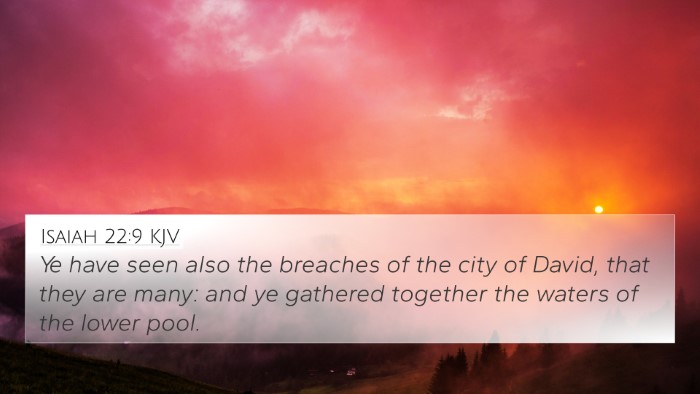Understanding 2 Kings 18:17
Bible Verse: 2 Kings 18:17 - "And the king of Assyria sent Tartan and Rabsaris and Rabshakeh from Lachish to king Hezekiah with a great host against Jerusalem. And they went up and came to Jerusalem: and when they were come up, they came and stood by the conduit of the upper pool, which is in the highway of the fuller's field."
This verse marks a significant moment in the narrative of King Hezekiah's reign over Judah, as it brings to light the imminent threat posed by the Assyrian empire. The commentary from notable theologians provides a deeper insight into the implications and context surrounding this verse.
Contextual Analysis
According to Matthew Henry, this passage illustrates the determination of the Assyrian king to assert dominance over Jerusalem. The envoy from Assyria attempted to intimidate Hezekiah and the people of Judah, exploiting their fears and anxieties to promote surrender.
Albert Barnes adds that the delegation sent (Tartan, Rabsaris, and Rabshakeh) signifies a strategic and systematic approach on the part of Assyria to apply pressure. This points to how the Assyrians were not merely interested in warfare but also in psychological tactics.
Further, Adam Clarke contextualizes this event within the broader narrative of Judah's troubles. The mention of the "upper pool" signifies a location critical for water supply and defense, emphasizing the strategic nature of Jerusalem's positioning during the siege.
Thematic Connections
This verse can be seen as part of a broader theme concerning the conflict between faith and fear. Hezekiah’s response to such threats is pivotal in understanding the larger narrative of spiritual resilience and reliance on God.
- Faith in Adversity: The impending attack forces Hezekiah and his people to confront their faith and reliance on divine intervention.
- The Role of Leadership: Hezekiah's character as a leader is integral, showcasing his need to guide his people through fear.
- Tactical Warfare: The Assyrian strategy emphasizes the use of psychological warfare through propaganda.
Cross-Referencing Biblical Texts
To deepen our understanding of 2 Kings 18:17, it is useful to draw connections with other scriptures that provide a thematic or narrative complement:
- Isaiah 36:1-22: This chapter recounts the same event, offering additional dialogue and threats from Rabshakeh.
- 2 Chronicles 32:9-19: Another account of the Assyrian siege and Hezekiah's responses, showcasing parallel themes of faith and resistance.
- 2 Kings 19:1-37: This follows the siege and details God’s deliverance of Jerusalem.
- Psalms 46:1-3: A reflection on God’s role as a refuge during times of trouble, paralleling the situation in Jerusalem.
- Isaiah 37:6-7: God's reassuring message to Hezekiah amidst the threats, reinforcing faith in divine protection.
- Matthew 10:16-20: Draws parallels to the concept of facing opposition and the need for divine guidance and assurance.
- Romans 8:31: "If God is for us, who can be against us?" highlights the importance of divine support in times of challenge.
Tools for Deepening Understanding
For those interested in exploring cross-references or making thematic connections, several resources are beneficial:
- Utilizing a Bible concordance can help identify parallel themes and verses.
- A Bible cross-reference guide is essential for linking scriptures accurately and effectively.
- Engaging in cross-reference Bible study methods enhances comprehension through related scriptures.
- Implementing a Bible reference resource will aid in deeper understanding across the Biblical narrative.
User Intent Questions
Common inquiries that arise when studying this verse may include:
- What verses are related to 2 Kings 18:17?
- Find cross-references for 2 Kings 18:17.
- How do Isaiah 36:1-22 and 2 Kings 18:17 connect?
- Similarities between Isaiah 37:6-7 and 2 Kings 18:17.
- Bible verses that support the theme of faith during adversity.
Conclusion
2 Kings 18:17 is not just a historical account but invites us to engage with the themes of fear, leadership, and faith. Through the insights offered by various commentators and cross-references, we can appreciate the depth of the Biblical narrative and the connections that enrich our understanding of God's relationship with His people in times of trouble.
